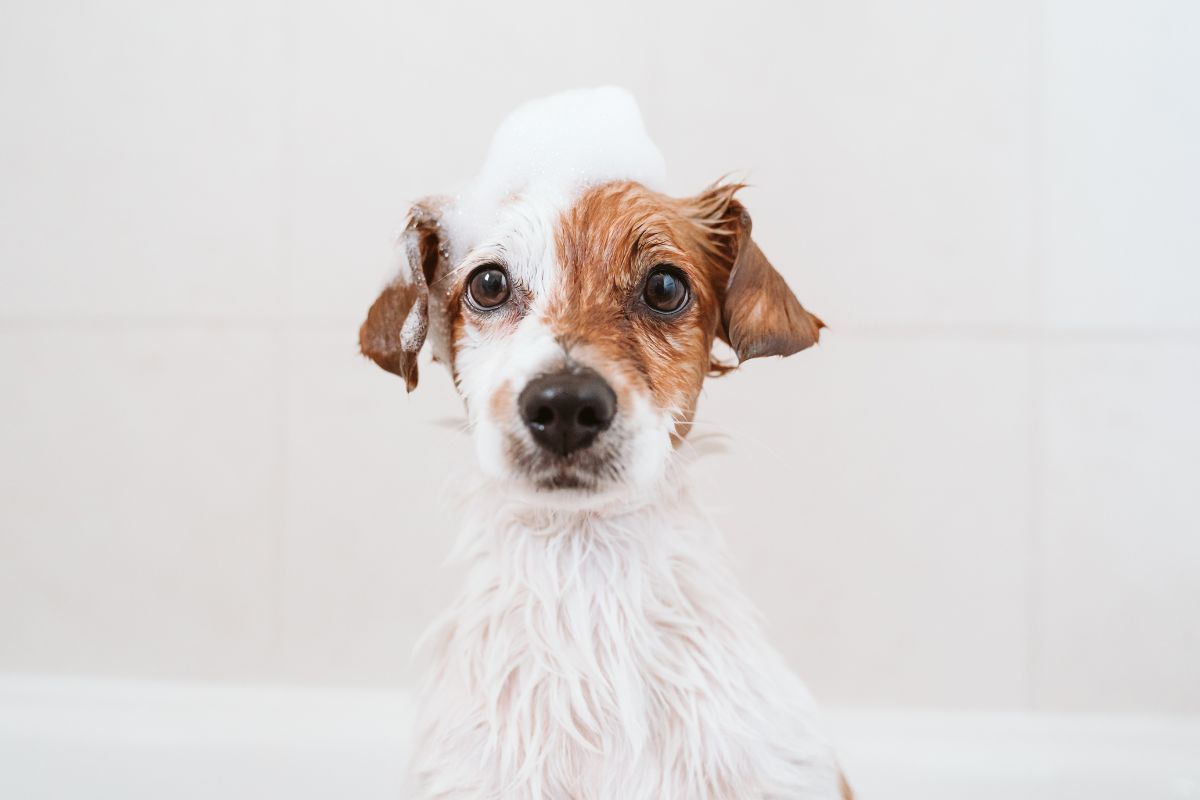Dog Shampoos - Are Parabens and Silicones bad?

Here we take a closer look at Parabens and Silicones and how they are used in dog shampoos. We assess their chemical composition and how this could possibly be linked to skin sensitivity, health risks and their overall environmental impact.
What are Parabens?
Parabens are a type of synthetic chemical compound commonly used as preservatives in various personal care products, including shampoos, cosmetics, and skincare items. They are added to these products to prevent the growth of bacteria, mold, and yeast, thereby extending the product's shelf life.
The concern with parabens in dog shampoo, as well as in human personal care products, primarily revolves around their potential health risks. While the research is ongoing, here are a few reasons why some people are cautious about using products containing parabens on their pets:
Skin Sensitivity: Dogs, like humans, can have sensitive skin. Parabens may cause skin irritation and allergic reactions in some dogs. These reactions can manifest as redness, itching, dryness, or rashes.
Hormonal Disruption: Parabens can mimic estrogen in the body, and there is concern that long-term exposure to parabens may disrupt hormone balance. This is a more significant concern in humans, where studies have shown that parabens can be detected in breast tissue and have been linked to breast cancer. While there is limited research on how this might affect dogs, it's a potential concern.
Ingestion Risk: Dogs often lick themselves after being bathed, potentially ingesting small amounts of the shampoo. If the shampoo contains parabens, this ingestion could contribute to their exposure to these chemicals.
Environmental Impact: When these products are washed off a dog and enter the wastewater system, they can end up in the environment. Parabens have been detected in water bodies, and their accumulation can be harmful to aquatic life.
It's essential to note that the potential risks associated with parabens are still a subject of ongoing research and debate, and the degree of risk can vary from one individual (or animal) to another. Some pet owners choose to avoid products containing parabens as a precautionary measure and opt for shampoos that use alternative preservatives or are paraben-free.
If you're concerned about the ingredients in your dog's shampoo, it's a good idea to consult with your veterinarian for recommendations on products that are suitable for your pet's specific needs and sensitivities. Additionally, always read product labels and conduct research to make informed choices about the products you use on your pets.
Are Silicones in shampoo a bad thing?
Silicones are not necessarily "bad" in dog shampoos, but their use can have both advantages and disadvantages, depending on the specific needs of your dog and the type of shampoo you are using. For example, silicones can sometimes help with coat shine, detangling and can sometimes aid brushing and grooming. However, there are also some concerns in the dog world as to whether their synthetic properties could intefere with natural oil production and healthy regrowth of the coat.
Disadvantages of silicones:
Buildup: One of the main concerns with silicones in dog shampoo is that they can build up on the skin and coat over time. This buildup can trap dirt and grime, making the coat appear dull and potentially causing skin issues.
Skin Sensitivity: Some dogs may be sensitive or allergic to certain silicones, leading to skin irritation, itching, or rashes. It's essential to monitor your dog for any adverse reactions after using a shampoo with silicones.
Environmental Impact: Silicones are synthetic compounds that do not readily break down in the environment. When washed off your dog and into the water supply, they can contribute to water pollution.
Reduced Natural Oils: While silicones can help lock in moisture, they can also create a barrier that prevents the natural oils produced by your dog's skin from reaching the surface. Over time, this can lead to dryness and a less healthy coat.
Please note: If your dog has a healthy coat and skin, a shampoo with or without silicones and parabens may be fine. We are not saying this is all bad. However, if your dog has skin sensitivities or allergies, it's a good idea to consult with a veterinarian before choosing a shampoo, and consider opting for a silicone-free formula to reduce the risk of skin irritation or adverse reactions.
Wiggles and Wags offers a range of Vegan dog shampoos here https://wigglesandwags.co.uk/products/happy-face-dog-shampoo-vegan-no-parabens-no-silicones





